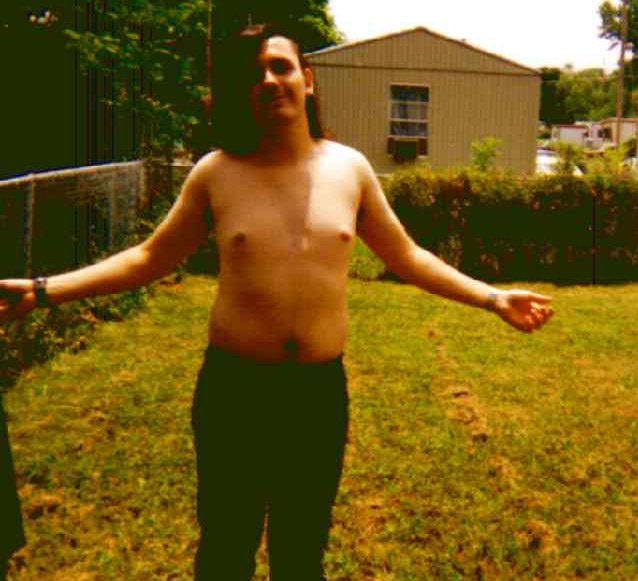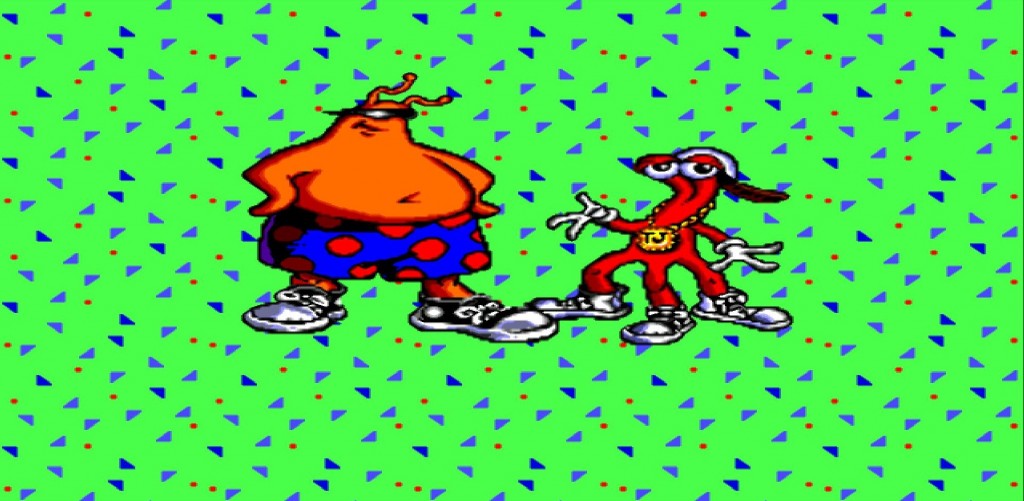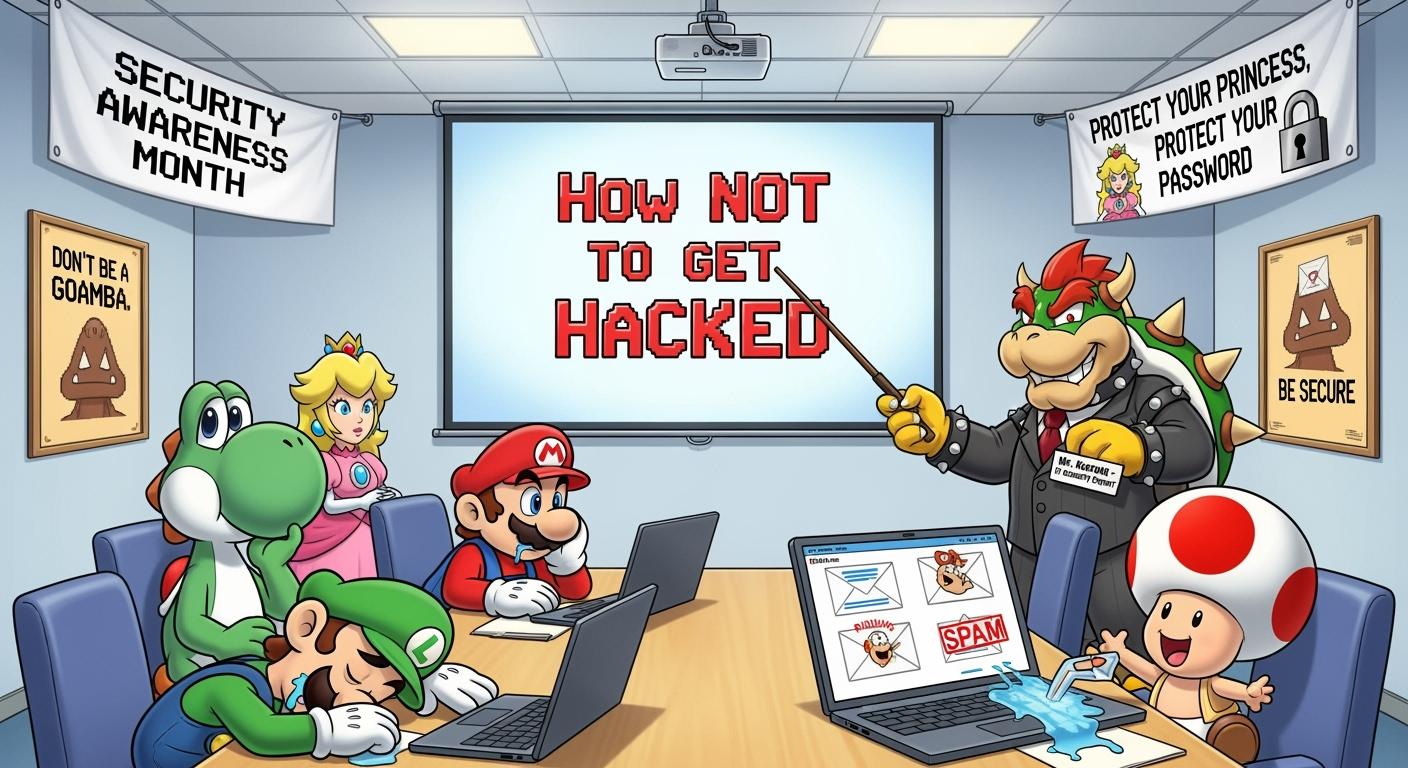A Garage Sale Becomes a Legal Battlefield
What began as a quiet Saturday morning in Saratoga, New York quickly escalated into what some neighbors now refer to as “the day Nintendo declared war on suburbia.” Local resident Robby Thompson held a simple garage sale in his driveway, offering old household items, clothing, and a box of retro video games. One of those games happened to be a sealed copy of Super Mario Bros. 3 which sold for twenty dollars to a neighborhood child.
(HEY YOU!! We hope you enjoy! We try not to run ads. So basically, this is a very expensive hobby running this site. Please consider joining us for updates, forums, and more. Network w/ us to make some cash or friends while retro gaming, and you can win some free retro games for posting. Okay, carry on 👍)
Thompson thought nothing of it at first. For him, it was just another dusty relic from his attic, sitting in a box between VHS tapes of Walker, Texas Ranger and a George Foreman Grill that had not been used since the Clinton administration. But only a few days later, a large white envelope arrived in his mailbox stamped with a bold red Nintendo logo. Inside was a formal cease and desist letter warning him that his actions had “gravely harmed” the Nintendo brand and potentially violated U.S. copyright law.
Thompson was stunned to discover a formal cease and desist letter allegedly from Nintendo of America. The letter accused him of infringing on Nintendo’s intellectual property rights and warned that his garage sale posed “a direct threat to the value of our product and the prestige of our brand.” It further claimed that selling classic Nintendo games at heavily reduced prices could “undermine decades of market stability.”
“I thought it was a joke at first,” Thompson said. “It’s not every day you sell some old games for pocket change and get threatened with a lawsuit by a multibillion dollar company. I was just trying to clear out space in my attic, not collapse Nintendo’s stock value.”
Nintendo’s Allegations
The letter, dated August 28, 2023, specifically references the Super Mario Bros. 3 sale as an example of what it calls “unauthorized distribution at significantly decreased prices.” Nintendo accused Thompson of engaging in activities that directly undercut their business model, pointing out that a sealed copy of the game could fetch hundreds online or even thousands in rare cases.
The letter went so far as to argue that Thompson’s bargain-bin pricing created “confusion in the market” and risked sending a message to consumers that Nintendo products could be obtained cheaply. The implication was clear. Garage sales were no longer innocent weekend events. They were now battlegrounds in the corporate war over intellectual property.
This escalation left Thompson bewildered. He is not a scalper or collector, just a man cleaning out old clutter. Yet Nintendo’s lawyers painted him as the ringleader of what might as well have been an international smuggling operation. The wording of the letter gave the impression that a single driveway in Saratoga could topple decades of Nintendo’s brand prestige.
“We regret to inform you that your actions have directly harmed the prestige of our product,” the letter reads. “Selling iconic titles at bargain bin rates is not only economically damaging, but culturally irresponsible.”
Mr. Thompson had this to say to the Tribune:
“They are basically accusing me of running an underground black market out of my driveway,” Thompson explained. “Meanwhile, I was also selling mismatched mugs and an old vacuum cleaner. I didn’t realize I was a kingpin.”
Local Reactions
Neighbors in Saratoga were both amused and alarmed by the ordeal. Several reported seeing men in suits with Mario hats patrolling the block during the sale. Witnesses described the scene as part circus and part sting operation. Nintendo’s so-called “legal strike force” appeared almost cartoonish in their seriousness, photographing boxes of old electronics and inspecting the labels on dusty cartridges.
Parents in the neighborhood told stories of lawyers approaching their children with clipboards. One mother said her son was asked to explain where he first heard about Mario. Another resident swore that one of the lawyers tried to flip through her copy of Better Homes and Gardens in case it contained unauthorized Nintendo characters in the crossword puzzle.
Even the young buyer of the Super Mario Bros. 3 cartridge found himself swept up in the spectacle. Neighbors say the boy proudly clutched his purchase until one of the attorneys knelt down and began reading him a list of legal disclaimers in rapid succession. For a few surreal minutes, the driveway felt less like a garage sale and more like a courtroom drama unfolding in real time.
“They were taking pictures of the tables, jotting down notes, and whispering into walkie talkies,” one neighbor claimed. “I thought it was cosplay until they started confiscating the Nintendo cartridges.”
“My kids were jumping rope when a lawyer in suspenders told them they could not touch the Game Boy Color on display without signing a liability waiver. This is the strangest thing I’ve seen in thirty years of living here.”
“They asked me if I still had the receipt,” Jason recalled. “Then they made me sign something called a Non Disclosure Agreement. I just wanted to play Mario.”
Experts Weigh In
Legal experts quickly began debating the significance of the case. Some dismissed the letter as unenforceable, a mere scare tactic. Others warned that if Nintendo truly intended to pursue the matter, it could redefine the scope of intellectual property enforcement in the United States.
For decades, Nintendo has aggressively defended its creations, taking down fan games, ROM websites, and modders with little hesitation. Yet the leap from shutting down online projects to patrolling suburban yard sales struck many as absurd. Analysts argued that this was less about law and more about sending a message. The company wanted the public to know that nostalgia was not free and that every Mario memory came with a price tag.
Collectors, meanwhile, reacted with gallows humor. Many suggested that flea markets could soon require “Nintendo-Free Zones” or that swap meets might adopt metal detectors calibrated to beep at NES cartridges. Some even joked about hosting underground retro game gatherings in undisclosed locations, complete with code words and disguises to evade Nintendo’s enforcement squads.
“If Nintendo really is sending cease and desist letters to suburban dads, this sets an unusual precedent,” said Professor Alan Crandall of NYU Law. “It would mean no second hand market is safe, not even the card table at the end of your driveway.”
“Super Mario Bros. 3 is one of the most reissued and resold games in history,” said cultural analyst Dr. Franklin Dodd. “Nintendo has already sold it on the NES, the Super Nintendo, the Game Boy Advance, the Wii Virtual Console, the Wii U Virtual Console, and the Switch Online service. The idea that a single twenty dollar sale in Saratoga could hurt their bottom line is absurd, but also completely in line with their behavior over the last twenty years.”
For context, even mainstream gaming outlets have reported on Nintendo’s strict IP enforcement practices (Polygon).
“If this keeps up, we’ll have to hold retro game swaps in underground parking lots with secret passwords,” one said. “The next time you see someone in overalls at a flea market, it might not be a cosplayer, it might be Nintendo legal.”
Nintendo Responds
When pressed for comment, Nintendo of America released a short but stern statement. The company insisted it would continue to protect its intellectual property “at every level of the marketplace” and that unauthorized sales, no matter how small, were unacceptable. The response emphasized Nintendo’s belief that the integrity of its brand depended on strict control over every copy of its products, past and present.
Nintendo also took the opportunity to remind fans that Super Mario Bros. 3 is readily available on the Switch Online service, where it can be accessed for a monthly fee. The company framed this as a superior option to buying a cartridge from a stranger’s folding table, suggesting that only official channels can provide the “authentic Mario experience.”
Critics, however, saw the statement as proof of corporate arrogance. Many questioned whether a company truly needs to deploy lawyers to suburban driveways to defend products originally released in 1988.
“We take all infringements seriously, whether they occur online, in retail stores, or in neighborhood garage sales,” a spokesperson said. “Our intellectual property is the lifeblood of our business, and we will not allow unauthorized distribution at devalued rates to continue unchecked.”
“We encourage fans to access Mario through official channels,” the statement read. “Nostalgia is not a garage sale privilege. Nostalgia is a premium product.”
“It is one thing to shut down pirated ROM websites,” remarked legal analyst Claire Simmons. “It is another to send cease and desist threats to a man selling used items on his lawn.”
A Growing Trend?
Collectors and fans worry this case might mark the start of a wider crackdown. Rumors are already circulating of cease and desist letters sent to residents in other states who tried to sell old cartridges of Duck Hunt for pocket change. Others claim they were threatened for displaying Donkey Kong plush toys at local swap meets.
One particularly alarming report involved a flea market vendor in Ohio who received a warning after selling a scratched copy of Wii Sports for two dollars. According to the vendor, Nintendo agents seized his entire bin of discs and left behind a business card reading “Nintendo IP Task Force.”
For some, these stories confirm what they already suspected: that Nintendo’s lawyers now operate with the same vigilance as airport TSA agents. Where fans see nostalgia, the company sees threats to its intellectual empire.
“This is not about protecting creativity anymore,” one collector said. “This is about Nintendo trying to control every single interaction fans have with their old products, even if it happens on a suburban driveway once every five years.”
Conclusion
As for Robby Thompson, he says he has no intention of backing down.
“I still have a box of old Wii games and some Nintendo Power magazines in the basement,” he said defiantly. “If Nintendo wants them, they’ll have to bring more than a cease and desist letter. They’ll have to bring Luigi.”
Whether this escalates into an actual lawsuit remains unclear, but the situation has already drawn laughter and criticism from across the internet. For many fans, the story has become yet another example of Nintendo’s tendency to overreact in ways that feel both heavy handed and unintentionally hilarious.
In the battle between multibillion dollar corporations and suburban garage sales, one thing is certain. Only one side has the legal resources of the Mushroom Kingdom.
FAQs
| Question | Answer |
|---|---|
| What happened in Saratoga, NY? | A man sold a sealed copy of Super Mario Bros. 3 for $20 at a garage sale. |
| Why did Nintendo react? | Nintendo claims the sale devalued their intellectual property. |
| Did they really send a letter? | A letter circulated online allegedly shows a cease and desist sent to the seller. |
| What did the letter say? | It accused the man of infringing Nintendo’s rights and demanded he stop future sales. |
| What are neighbors saying? | They described it as surreal, with lawyers in Mario hats appearing in the neighborhood. |
| What about the buyer? | A 10-year-old boy claims he was asked to sign a Non-Disclosure Agreement. |
| Is this legally valid? | Experts doubt Nintendo has a case, but note the company is notoriously protective. |
| Has Nintendo done this before? | Yes, the company is known for aggressive legal action against fan projects and modders. |
| Will garage sales be targeted now? | Some collectors worry Nintendo could expand its enforcement to flea markets and yard sales. |
| What is the seller’s response? | He insists he will continue cleaning out his attic, Nintendo lawyers or not. |
Disclaimer: This story is a joke. If you believed Nintendo is really suing dads over garage sales, you probably need more satire in your life. You can find it at Lampoon Tribune.
 Retro Replay Retro Replay gaming reviews, news, emulation, geek stuff and more!
Retro Replay Retro Replay gaming reviews, news, emulation, geek stuff and more!





